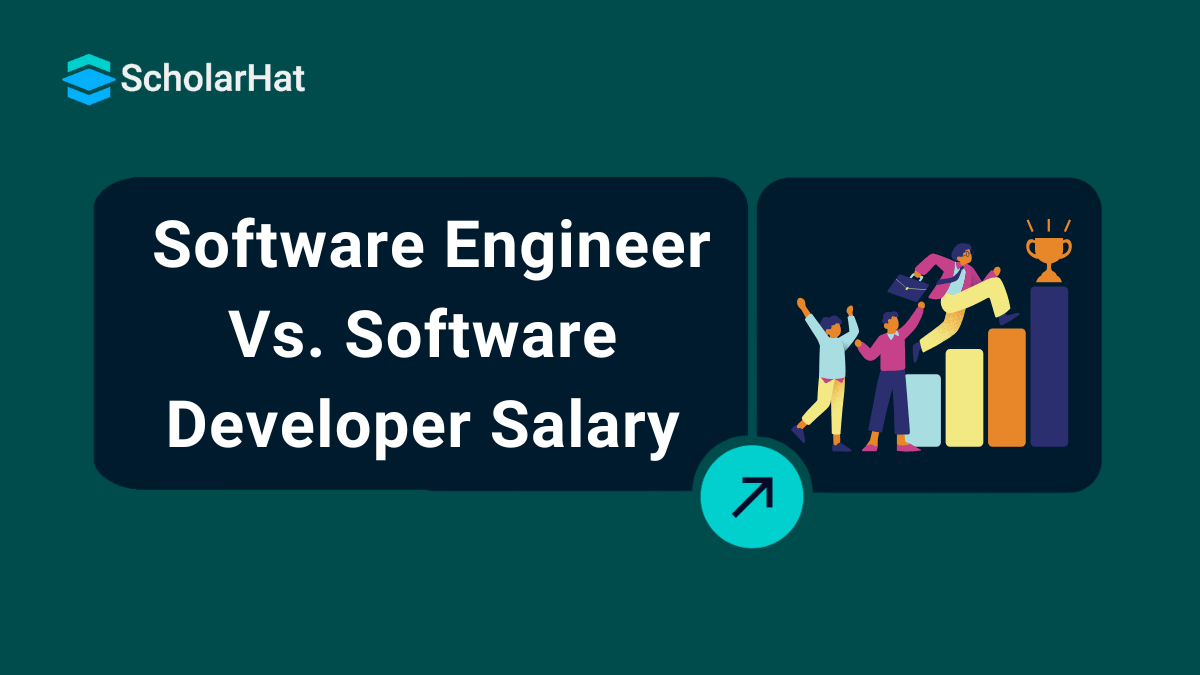06
FebSoftware Engineer Vs. Software Developer Salary
Hey there! Have you ever thought about the difference in pay between a software engineer and a software developer? It's actually super interesting! When it comes to software engineer vs software developer salary, engineers usually earn a little more because they often deal with large-scale systems and deeper architecture work, while developers focus more on coding and building applications. Still, both roles offer really impressive salaries, especially once you gain a few years of solid experience.
Now, in this career tutorial, you’re going to dive into some really exciting stuff! If you’ve ever wondered what you could earn as a Software Engineer Vs. Software Developer, you’re in the right place. Whether you’re just starting your journey or you’re simply curious, you’ll find that salaries can really surprise you. If you land a job in cities like Bangalore, Pune, or Hyderabad, you could be making anywhere between ₹6 to ₹20 lakhs a year, pretty awesome, right? No matter which path you choose, you’re setting yourself up for a future full of opportunities and big wins!
What is a software engineer?
A software engineer is someone who builds and fixes computer programs. They use coding languages like Python or Java to create apps, websites, games, and tools for businesses. Their job is to make sure everything runs smoothly, safely, and fast. They also solve tricky problems, fix bugs, and often work in teams to build cool technology.| Read More: How to Become a Software Engineer: No Experience to Pro |
What is the salary of a software engineer?
If you're dreaming of becoming a software engineer in India, the pay can be pretty exciting! Your salary grows as you gain more experience and skills. Here's a fun breakdown:
- Freshers (0–1 year): ₹3 to ₹6 LPA – Just getting started but already earning well.
- Mid-level (2–5 years): ₹6 to ₹12 LPA – More skills, more money!
- Senior Engineers (5–10 years): ₹12 to ₹25 LPA – Leading projects and teams.
- Experts (10+ years): ₹25 to ₹50+ LPA – Tech pros at the top of their game.
At big companies like Google or Amazon, software engineers can earn over ₹60 LPA with perks and bonuses!
People often wonder about the software engineer vs software developer salary, and in India, the gap is small. But engineers working on big systems or backend tech might get a higher paycheck.
So, if you're choosing your path, knowing the software engineer vs software developer salary can help you aim higher and earn smarter!
Who is a software engineer?
As a software engineer, you’re kind of like a problem-solver who uses technology and logic to build software. You do some of the same things a developer does, like writing code, but your role goes a bit deeper.
You’re involved in the full process, designing, building, testing, and even documenting how everything works. You’re not just focused on one part; you’re looking at the whole system. While you do know several programming languages, what really sets you apart is how you use math and science to solve problems in a smart, organized way. You're the one making sure the software is solid, reliable, and built to last.
The engineer plans how to build the mobile app and the website, making sure they both connect to the server and work smoothly together. They break the work into steps, give tasks to the software developer, and keep an eye on how everything fits and runs as a whole.
What is a software developer?
A software developer is a person who writes and fixes code to build computer programs. They use languages like Python, Java, or C++ to create apps for phones, websites, and computers. Developers turn ideas into real software that people can use easily and without problems. They also fix bugs and make programs better over time.
When people talk about tech jobs, the software engineer vs software developer salary often comes up. While the roles can overlap, salaries may differ depending on the job’s focus and company.
Knowing the software engineer vs software developer salary can help you decide which path fits your skills, and helps you earn what you deserve.
What is the salary of a software engineer?
If you're planning to become a software developer in India, the salary can be a great motivation! Just like with software engineers, your pay grows as you gain more experience and sharpen your skills. Here’s a simple breakdown:
- Freshers (0–1 year): ₹3 to ₹5 LPA – You’re starting out, but it’s already a solid income.
- Mid-level (2–5 years): ₹5 to ₹10 LPA – With some real-world experience, your value goes up.
- Senior Developers (5–10 years): ₹10 to ₹20 LPA – You’re managing features, mentoring others, and handling bigger tasks.
- Experts (10+ years): ₹20 to ₹40+ LPA – At this level, you’re often leading tech decisions and building complex systems.
At top tech companies like Google, Amazon, or Microsoft, software developers can also earn over ₹50–60 LPA when you include bonuses and perks
When it comes to software engineer vs software developer salary, the difference is usually small. However, engineers working on system design or backend architecture might earn slightly more. Either way, both paths can lead to strong careers and great pay!
Who is a software developer?
A software developer is someone who designs, creates, and launches computer programs. These programs can be for things like operating systems, apps, games, or business tools. They also work on making services that run on the internet or in the cloud.
Software developers use their skills to make sure the programs meet what the client and users need. They can either work as part of a company’s team or as a freelancer, helping different clients.
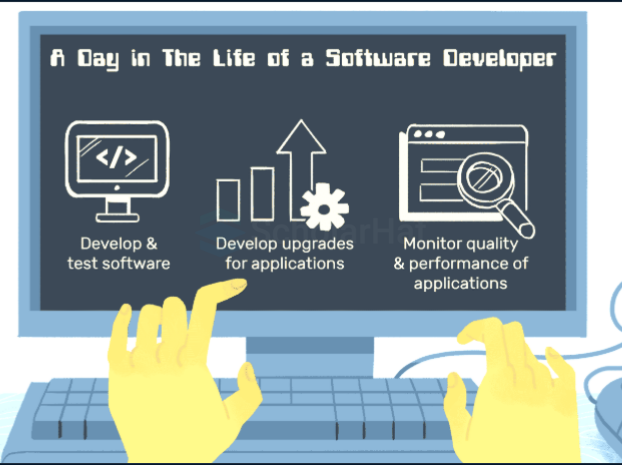
Software Engineer Vs. Software Developer
The Differences between Software Engineer Vs. Software Developersare as follows:
| Category | Software Engineer | Software Developer |
| Definition | A professional who applies engineering principles to design, develop, and maintain software systems. | A programmer who builds, tests, and maintains software applications. |
| Focus Area | System architecture, scalability, and technical infrastructure. | Application features, functionality, and user requirements. |
| Key Responsibilities | Designing software architecture, ensuring system-level integrity, and solving complex problems. | Writing clean code, debugging, deploying apps, and collaborating with teams. |
| Educational Background | Typically holds a degree in Software Engineering or Computer Science. | Often has a degree in Computer Science or a related field. |
| Skill Set | Strong in algorithms, systems design, DevOps, and engineering practices. | Skilled in programming languages, frameworks, and UI/UX principles. |
| Tools Used | Git, Docker, Jenkins, UML tools, cloud platforms. | IDEs (VS Code, IntelliJ), GitHub, APIs, front-end/back-end tools. |
| Career Path | Can move into roles like Technical Architect, Engineering Manager, or CTO. | Can grow into roles like Senior Developer, Lead Developer, or Product Manager. |
| Average Salary (US) | $110,000 – $140,000 per year | $95,000 – $120,000 per year |
| Work Style | More structured, engineering-driven approach. | More creative, code-focused implementation style. |
| Best For | Those who enjoy systems thinking and technical depth. | Those who love coding, building features, and launching applications. |
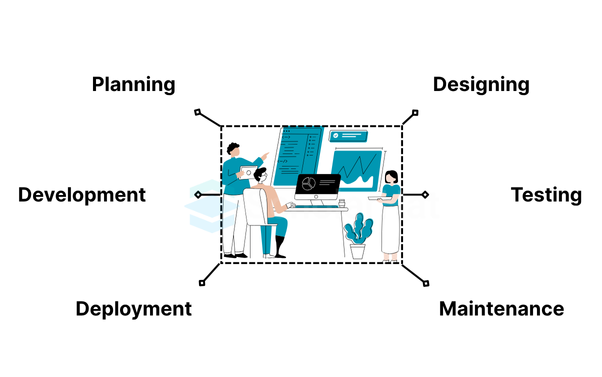
Software Engineer Salary in India
| Experience Level | Average Salary Range (INR/Year) |
| Entry-Level (0–2 yrs) | ₹4.5 – ₹7 LPA |
| Mid-Level (3–5 yrs) | ₹8 – ₹14 LPA |
| Senior-Level (6+ yrs) | ₹15 – ₹25+ LPA |
Software Developer Salary in India
| Experience Level | Average Salary Range (INR/Year) |
| Entry-Level (0–2 yrs) | ₹3.5 – ₹6 LPA |
| Mid-Level (3–5 yrs) | ₹6 – ₹12 LPA |
| Senior-Level (6+ yrs) | ₹12 – ₹20 LPA |
Responsibilities: Software Engineer Vs. Software Developer
- A Software Engineer designs and develops complex software systems, focusing on system architecture, scalability, performance, and security.
- They optimize processes, collaborate with cross-functional teams, and handle documentation, debugging, and testing at a system level.
- A Software Developer focuses on writing clean, efficient, and maintainable code for applications.
- They implement new features, work on application-level functionality, and ensure the software meets user requirements.
- Developers test and debug software, participate in code reviews, and maintain software by updating it to improve performance.
- While Software Engineers handle broader system design and optimization, Software Developers focus on coding and feature implementation.
Education: Software Engineer Vs. Software Developer
Software Developers also commonly have a Bachelor’s Degree in Computer Science, software development, or a similar discipline. While formal education is important, developers often focus more on programming skills, learning coding languages, and understanding application development. Many developers also gain hands-on experience through coding bootcamps, internships, or self-learning.
In today’s tech industry, many employers also value practical skills and real-world experience alongside formal education. Both software engineers and software developers are expected to stay updated with the latest programming languages, frameworks, and best practices. Certifications, personal projects, open-source contributions, and hands-on experience often play a big role in career growth, sometimes even outweighing formal degrees, especially in fast-paced or startup environments.
Career Path: Software Engineer Vs. Software Developer
- Quality Assurance Engineer: A QA Engineer's career moves from Analyst to Senior Engineer, then to Lead or Manager, and maybe to Director or Head of Quality.
- Software Integration Engineer: A Software Integration Engineer's career goes from working on integration projects to Senior Engineer, then to Architect, and maybe to Manager or Solutions Architect.
- Cybersecurity Engineer: A Cybersecurity Engineer's career moves from Analyst to Engineer, then to Architect or CISO, focusing on security and threat detection.
- Cloud Engineer: A Cloud Engineer's career grows from Support Associate to Engineer, Architect, and then to Solutions Architect or Manager.
- Machine Learning Engineer: A Machine Learning Engineer's career moves from Data Scientist to Senior Engineer, Architect, and then to AI Researcher or Manager..
- DevOps Engineer:A DevOps Engineer's career grows from System Admin or Developer to Engineer, Senior Engineer, and then to Architect or Manager..
- Full Stack Engineer:A FullStack Engineer’scareer path moves from Junior Developer to Full Stack Developer, then to Tech Lead or Engineering Manager roles.
Here are some Software Developer positions you might qualify for:
- Frontend Developer: A Frontend Developer grows from Junior to Senior Developer, then to Lead or Architect, and later to Manager or CTO.
- Backend Developer: A Backend Developer grows from Junior to Senior Developer, then to Lead or Architect, and later to Manager or CTO.
- Full Stack Developer: A Full Stack Developer grows from Junior to Full Stack Developer, then to Senior or Tech Lead, and later to Manager or CTO.
- Data Engineer: A Data Engineer grows from Junior to Senior Engineer, then to Architect or Lead, and later to Chief Data Officer.
- Security Engineer: A Security Engineer grows from Junior to Senior Engineer, then to Security Architect or Lead, and later to CISO or Manager..
- Mobile App Developer: A Mobile App Developer grows from Junior to Senior Developer, then to Lead or Architect, and later to Manager or CTO.
| Read More: Mobile App Developer Salary in India 2025 |
Skills: Software Engineer Vs. Software Developer
- Project and Time Management
- Knowledge of Data Structures and Algorithms
- Problem-solving, Analytical, and Learning Skills
- Understanding of the Software Development Lifecycle (SDLC)
- Understanding of Coding Standards, Version Control, and Testing
- Familiarity with Agile Processes
- Leadership, Teamwork, and Communication Skills
Here are some key skills for software developers :
- Strong Problem-Solving and Creative Thinking
- Proficiency in Front-End Technologies (HTML, CSS, JavaScript)
- Ability to Write Clean, Readable Code
- Experience with Responsive Web Design and Cross-Browser Compatibility
- Knowledge of Front-End Tools and Best Practices
- Excellent Communication and Teamwork Skills
- Familiarity with Agile and Test-Driven Development
- Ability to Take Feedback and Improve User Experience
- Attention to Detail and Time Management
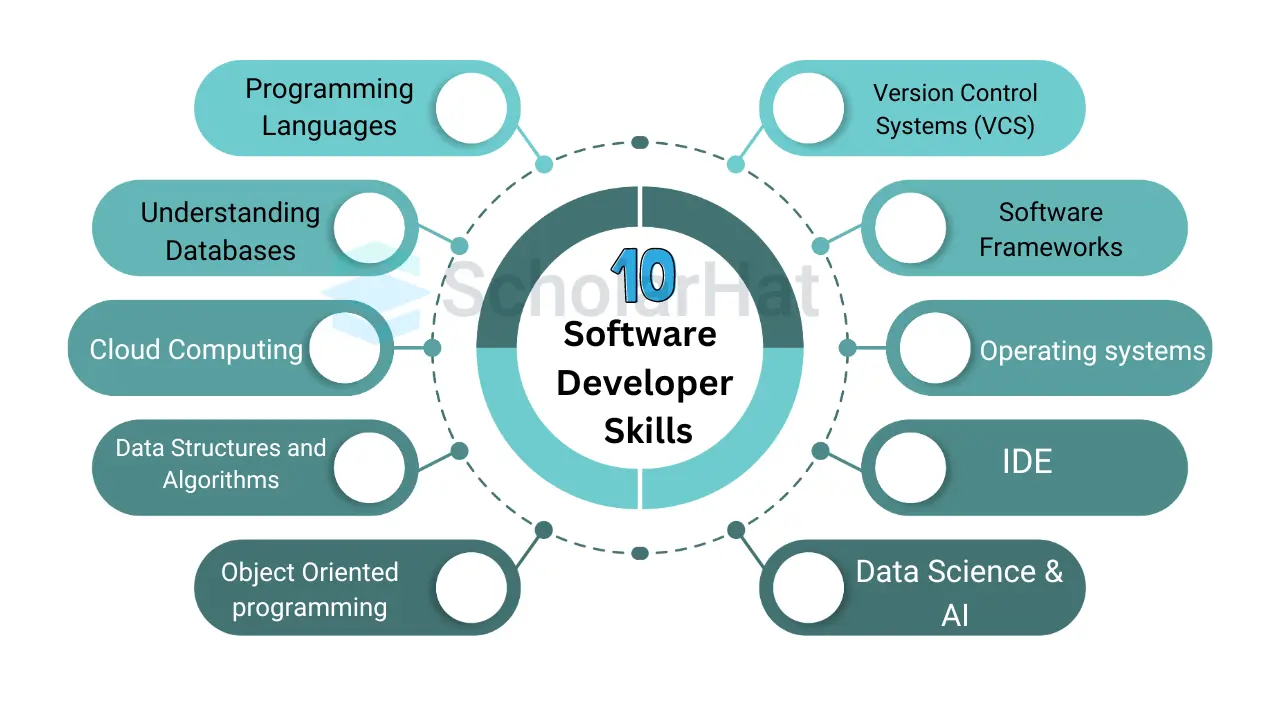
Key salary differences between Software Engineers and Software Developers across experience levels and regions:
| Read More: software-developer-salary |
Job outlook for Software Engineers Vs. Software Developer
The software industry continues to demonstrate exceptional growth potential, with 153,900 job openings projected annually for software developers and engineers over the next decade—a 25% increase that far outpaces most other professions.
Key Drivers of Demand:
- Rapid digitization across industries, from healthcare to finance
- Escalating cybersecurity needs as threats evolve
- Expansion of cloud computing and SaaS solutions
- Boom in AI, machine learning, and automation
Salary Prospects:
Entry-level roles:
- 70,000-85,000
Experienced professionals:
- 120,000–180,000+
Note: Varies by specialization, location, and company
With technology shaping nearly every sector, skilled software professionals will remain in high demand, offering long-term career stability and growth opportunities
Software Engineer Best Practices
Great software engineers follow these key rules to build high-quality, ethical, and client-friendly solutions:
Build Useful, Reliable Software
- Make sure your work helps the client and your company.
- Keep quality high at every step, no shortcuts.
Work with Integrity
- Be honest about what you can and can’t do.
- Take ownership of your work, don’t depend on others to fix mistakes.
Follow Ethical Practices
- Write clean, secure, and fair code.
- Never take unethical shortcuts, even under pressure.
Collaborate & Help Others
- Share knowledge with your team.
- Work together to solve problems, no lone wolves!
Software Developer Best Practices
Write Clean, Understandable Code
- Use clear names (like calculateDiscount() instead of calc())
- Keep functions short (do one job well)
Test Your Code Thoroughly
- Write tests for new features (try tools like Jest or JUnit)
- Check edge cases (empty inputs, wrong data types)
Work Well with Your Team
- Break big tasks into small, clear steps
- Write helpful commit messages ("Fix login error" not "Update code")
Keep Improving
- Learn from mistakes (yours and others')
- Stay updated on new tools (but master basics first)
Top Recruiters for Software Engineers Vs. Software Developer in India
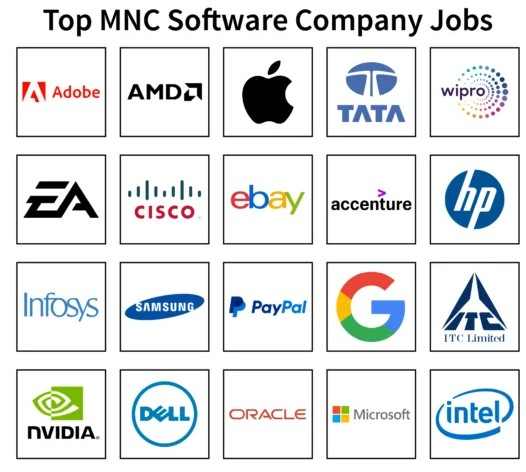
Top Platforms to Apply for Software Developer Jobs
- Build a strong profile and connect with recruiters
- Get job alerts, recommendations, and endorsements
- Ideal for full-time, remote, or freelance tech jobs
Indeed
- Easy to search and apply for software jobs
- Filter by salary, location, or experience level
- Offers many job listings for engineers and developers
- Compare software engineer and developer salaries
- Read company reviews and interview tips
- Helps you find a good company culture fit
Hired
- Companies apply to you based on your skills
- Best for software engineers and developers in big tech cities
- Saves time and focuses on top tech talent
AngelList
- Apply directly to startups hiring developers and engineers
- See company funding and equity details
- Great for remote and early-stage roles
Summary:
In India, software engineers typically earn 10–20% higher salaries than software developers, based on skills, experience, and location. Certifications like AWS Certified Developer, Microsoft Certified: Azure Developer Associate (for developers),AWS Certified Solutions Architect, and Google Professional Cloud Architect (for engineers) can boost salaries and job prospects. Expertise in Java, Python, and cloud platforms also drives better packages. Overall, both careers offer excellent growth, strong salary hikes, and consistent demand across the tech industry.

